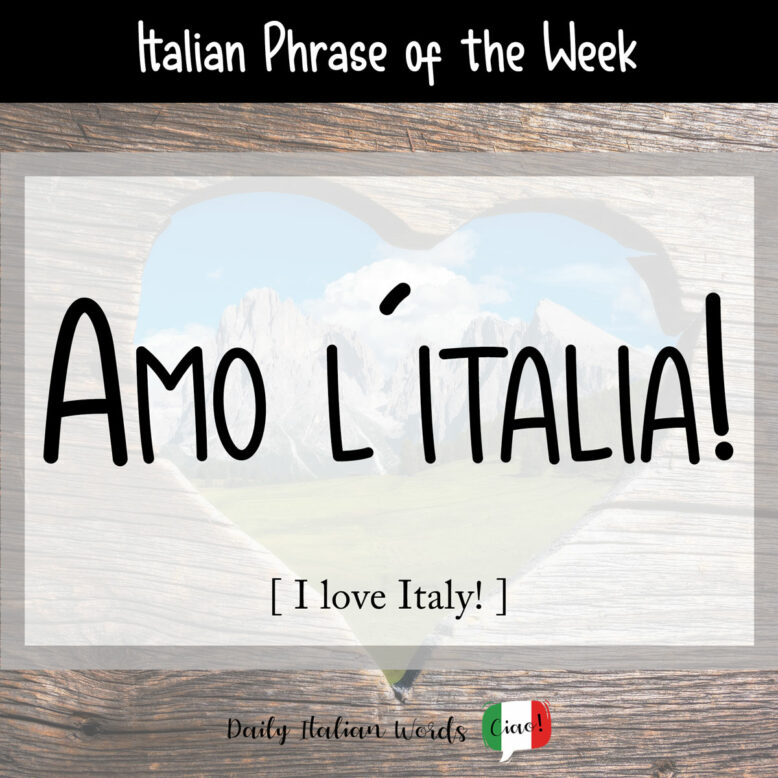If there is one thing that all followers of this website have in common, it is our shared love for Italy and the Italian language. This week’s phrase will allow you to express that love in its purest form:
Amo l’Italia!
I love Italy!

Let’s take a moment to deconstruct the phrase, shall we?
Amo is the first-person singular form of the verb amare meaning to love. Similar to the English verb, it is used for both people and things.
In most cases, it is not necessary to include the subject pronoun io (which means ‘I’) before the verb because the subject of the verb is identified by the verb ending itself (i.e. the -o in amo tells us that “I” am the subject).
You would only ever use io if you wanted to a) establish a counter-distinction between one subject and another, or b) create emphasis. For example:
Io amo l’Italia, ma tanti italiani non la amano.
I love Italy, but many Italians don’t (love it).

Note: A second expression that means to love in Italian is volere bene a (qualcuno). However, this phrase can only be used towards people, not countries. If you’re curious to find out more about this topic, be sure to check out our dedicated article: Ti amo vs Ti voglio bene.
L’Italia literally translates as ‘the Italy’ in English. This is because country names are usually preceded by a definite article in Italian. L’ is used because Italia begins with a vowel.
Note: Countries are assigned genders in Italian. Italia is a feminine noun, as are la Francia and la Spagna, whereas countries like il Canada and il Giappone are masculine.
Amo l’Italia! Non vedo l’ora di tornarci il prossimo anno!
I love Italy! I can’t wait to go back next year!
Of course, Amo l’Italia! isn’t the only way to express your love for Italy. You can also resort to one of the following phrases:
- (Io) adoro l’Italia! = I adore Italy!
- Mi piace tanto / molto l’Italia! = I really like Italy!
- Italia, ti amo! = Italy, I love you!

Heather Broster is a graduate with honours in linguistics from the University of Western Ontario. She is an aspiring polyglot, proficient in English and Italian, as well as Japanese, Welsh, and French to varying degrees of fluency. Originally from Toronto, Heather has resided in various countries, notably Italy for a period of six years. Her primary focus lies in the fields of language acquisition, education, and bilingual instruction.


